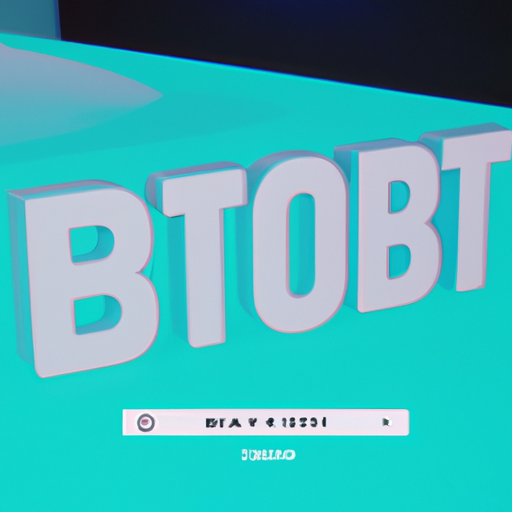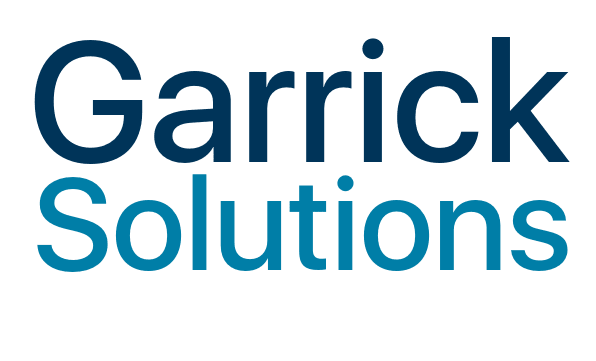Enhancing healthcare through intelligent conversation.
Enhancing Mental Health Support and Counseling through Chatbot Technology
Chatbots have become increasingly popular in various industries, and healthcare is no exception. These virtual assistants are revolutionizing the way patients engage with healthcare providers and receive support. In particular, chatbots are proving to be a valuable tool in enhancing mental health support and counseling.
Mental health is a critical aspect of overall well-being, and it is essential to provide individuals with the necessary resources and support. However, traditional mental health services often face challenges such as limited availability, long waiting times, and stigma. This is where chatbot technology comes in, offering a solution that is accessible, convenient, and confidential.
One of the primary benefits of using chatbots for mental health support is their availability 24/7. Mental health issues can arise at any time, and having a chatbot that is always accessible ensures that individuals can seek help whenever they need it. This round-the-clock availability can be particularly crucial during moments of crisis or when immediate support is required.
Moreover, chatbots provide a safe and confidential space for individuals to express their thoughts and emotions. Many people hesitate to seek traditional counseling due to the fear of judgment or the stigma associated with mental health. By interacting with a chatbot, individuals can feel more comfortable discussing their concerns openly and honestly, without the fear of being judged.
Chatbots are also effective in providing personalized support and counseling. Through advanced algorithms and machine learning, these virtual assistants can analyze user responses and tailor their interactions accordingly. This personalized approach ensures that individuals receive support that is specific to their needs, increasing the effectiveness of the counseling process.
Furthermore, chatbots can offer continuous support and follow-up care. After an initial counseling session, it is essential to maintain regular contact with individuals to monitor their progress and provide ongoing support. Chatbots can send reminders, check-ins, and provide resources to individuals, ensuring that they stay engaged in their mental health journey.
Another advantage of chatbots in mental health support is their ability to provide immediate crisis intervention. In situations where individuals are experiencing severe distress or contemplating self-harm, chatbots can offer immediate support and guidance. They can provide coping strategies, connect individuals with emergency services, or simply offer a listening ear during moments of crisis.
Additionally, chatbots can assist in the early detection of mental health issues. By analyzing user responses and patterns, chatbots can identify potential signs of mental health concerns. This early detection allows healthcare providers to intervene promptly and provide the necessary support, potentially preventing the escalation of mental health issues.
While chatbots are undoubtedly beneficial in enhancing mental health support and counseling, it is important to acknowledge their limitations. Chatbots are not a substitute for human interaction and should not replace traditional counseling services entirely. Instead, they should be seen as a complementary tool that can augment existing mental health services.
In conclusion, chatbots are transforming the way mental health support and counseling are delivered. Their availability, confidentiality, personalized approach, continuous support, crisis intervention capabilities, and early detection abilities make them a valuable asset in the field of mental health. By leveraging chatbot technology, healthcare providers can improve patient engagement, increase accessibility, and ultimately enhance the overall well-being of individuals seeking mental health support.
Personalizing Patient Care and Support with AI Chatbots
Chatbots have become increasingly popular in various industries, and healthcare is no exception. These AI-powered virtual assistants are revolutionizing the way patients engage with healthcare providers and receive support. By personalizing patient care and support, chatbots are improving the overall patient experience and enhancing healthcare outcomes.
One of the key advantages of chatbots in healthcare is their ability to provide personalized care. Traditional healthcare systems often struggle to deliver individualized attention to each patient due to time constraints and limited resources. However, chatbots can bridge this gap by offering tailored support based on the patient’s specific needs and preferences.
With the help of advanced algorithms, chatbots can analyze vast amounts of patient data, including medical history, symptoms, and preferences. This enables them to provide accurate and relevant information to patients, helping them make informed decisions about their health. By understanding the unique circumstances of each patient, chatbots can offer personalized advice, treatment recommendations, and even reminders for medication or appointments.
Moreover, chatbots can also assist patients in managing chronic conditions. For instance, a chatbot can monitor a patient’s blood glucose levels, remind them to take their medication, and provide dietary recommendations. This continuous support and guidance can significantly improve patient adherence to treatment plans, leading to better health outcomes.
In addition to personalized care, chatbots also play a crucial role in patient support. Many patients often feel overwhelmed or anxious about their health conditions, and it can be challenging for healthcare providers to address all their concerns adequately. However, chatbots can offer a safe and non-judgmental space for patients to express their worries and seek guidance.
By using natural language processing, chatbots can understand and respond to patients’ queries in a conversational manner. They can provide information about symptoms, treatment options, and potential side effects, alleviating patients’ concerns and empowering them to take an active role in their healthcare journey. Furthermore, chatbots can offer emotional support by providing resources for mental health, coping strategies, and connecting patients with support groups or therapists.
Another significant advantage of chatbots is their availability and accessibility. Patients can access chatbots 24/7, eliminating the need to wait for office hours or navigate complex phone systems. This accessibility ensures that patients can receive immediate support and information whenever they need it, reducing unnecessary emergency room visits and improving overall healthcare efficiency.
Furthermore, chatbots can also assist healthcare providers by automating administrative tasks. By handling appointment scheduling, prescription refills, and insurance inquiries, chatbots free up valuable time for healthcare professionals to focus on direct patient care. This automation not only improves efficiency but also reduces the risk of human error, ensuring accurate and timely information for patients.
In conclusion, chatbots are transforming the healthcare industry by personalizing patient care and support. Through their ability to analyze patient data and provide tailored advice, chatbots enhance the patient experience and improve healthcare outcomes. Additionally, chatbots offer a safe and accessible platform for patients to seek information and emotional support. By automating administrative tasks, chatbots also alleviate the burden on healthcare providers, allowing them to dedicate more time to direct patient care. As technology continues to advance, chatbots will undoubtedly play an increasingly vital role in healthcare, revolutionizing the way patients engage with their healthcare providers and receive support.
Improving Medication Adherence and Management with Chatbot Support

Chatbots have become increasingly popular in various industries, and healthcare is no exception. These virtual assistants are revolutionizing the way patients engage with healthcare providers and manage their medications. By providing personalized support and reminders, chatbots are improving medication adherence and management, ultimately leading to better patient outcomes.
One of the biggest challenges in healthcare is ensuring that patients take their medications as prescribed. Non-adherence to medication regimens is a widespread problem that can have serious consequences for patients’ health. However, chatbots are proving to be an effective solution to this issue.
Chatbots can send automated reminders to patients, ensuring that they never miss a dose. These reminders can be tailored to the individual’s specific medication schedule, making it easier for patients to stay on track. By receiving timely notifications, patients are less likely to forget or skip their medications, leading to improved adherence rates.
Moreover, chatbots can provide patients with valuable information about their medications. They can answer questions about dosage, potential side effects, and interactions with other drugs. This empowers patients to make informed decisions about their healthcare and fosters a sense of ownership over their treatment plans.
In addition to reminders and information, chatbots can also offer support and encouragement to patients. They can send motivational messages, reminding patients of the importance of taking their medications and the positive impact it can have on their health. This personalized support can be particularly beneficial for patients who struggle with adherence due to forgetfulness or lack of motivation.
Furthermore, chatbots can facilitate communication between patients and healthcare providers. Patients can use chatbots to report any side effects or concerns they may have about their medications. This real-time feedback allows healthcare providers to address issues promptly and make necessary adjustments to the treatment plan. By streamlining communication, chatbots enhance the patient-provider relationship and ensure that patients receive the best possible care.
Another advantage of chatbots in medication management is their ability to collect and analyze data. By tracking medication adherence and patient-reported outcomes, chatbots can generate valuable insights for healthcare providers. This data can help identify patterns and trends, allowing providers to tailor treatment plans to individual patients’ needs. Additionally, it can be used to monitor the effectiveness of medications and identify any potential issues early on.
While chatbots offer numerous benefits in medication adherence and management, it is important to acknowledge their limitations. They should not replace human interaction and should be seen as a complement to traditional healthcare services. In complex cases or situations that require a personal touch, patients should still consult with their healthcare providers.
In conclusion, chatbots are transforming medication adherence and management in healthcare. By providing personalized support, reminders, and information, they empower patients to take control of their health. Additionally, chatbots facilitate communication between patients and healthcare providers, ensuring that patients receive the best possible care. With their ability to collect and analyze data, chatbots offer valuable insights that can improve treatment outcomes. While they have their limitations, chatbots are undoubtedly a valuable tool in improving patient engagement and support in healthcare.
Streamlining Appointment Scheduling and Reminders through AI Chatbots
Chatbots in Healthcare: Improving Patient Engagement and Support
Streamlining Appointment Scheduling and Reminders through AI Chatbots
In today’s fast-paced world, where time is of the essence, healthcare providers are constantly seeking ways to improve patient engagement and support. One area that has seen significant advancements is the use of chatbots powered by artificial intelligence (AI). These intelligent virtual assistants are revolutionizing the healthcare industry by streamlining appointment scheduling and reminders, ultimately enhancing the patient experience.
Gone are the days of long wait times on the phone or playing phone tag with receptionists to book an appointment. AI chatbots have made the process seamless and efficient. With just a few clicks or a simple conversation, patients can schedule appointments at their convenience, without the need for human intervention. This not only saves time for both patients and healthcare providers but also reduces the chances of errors or miscommunication.
The AI chatbots are designed to understand natural language, making the interaction with patients feel more human-like. Patients can simply state their preferred date, time, and reason for the appointment, and the chatbot will find the most suitable slot available. The chatbot can also provide information on the availability of specific doctors or specialists, ensuring that patients are matched with the right healthcare professional for their needs.
Furthermore, AI chatbots can send automated reminders to patients, reducing the number of missed appointments. These reminders can be personalized based on the patient’s preferred communication channel, whether it be through text messages, emails, or even voice calls. By proactively reminding patients of their upcoming appointments, healthcare providers can minimize no-shows and optimize their schedules, leading to better resource allocation and improved patient care.
The benefits of using AI chatbots for appointment scheduling and reminders extend beyond convenience and efficiency. These virtual assistants can also provide additional support and information to patients. For instance, they can answer frequently asked questions about the appointment process, such as what to bring or how to prepare. This reduces the burden on healthcare staff, allowing them to focus on more complex tasks and providing personalized care to patients.
Moreover, AI chatbots can integrate with electronic health records (EHR) systems, enabling them to access relevant patient information. This integration ensures that patients receive tailored reminders and recommendations based on their medical history and specific healthcare needs. For example, a chatbot can remind a diabetic patient to bring their glucose monitor to their appointment or provide dietary recommendations based on their condition.
While AI chatbots have proven to be highly effective in streamlining appointment scheduling and reminders, it is important to note that they are not meant to replace human interaction entirely. Instead, they complement the existing healthcare infrastructure by automating routine tasks and providing additional support. In cases where patients require more complex assistance or have specific concerns, the chatbot can seamlessly transfer the conversation to a human healthcare professional.
In conclusion, AI chatbots are transforming the healthcare industry by improving patient engagement and support. By streamlining appointment scheduling and reminders, these virtual assistants save time, reduce errors, and enhance the overall patient experience. With their ability to understand natural language, provide personalized information, and integrate with EHR systems, AI chatbots are revolutionizing the way healthcare providers interact with their patients. As technology continues to advance, we can expect even more innovative applications of chatbots in healthcare, ultimately leading to better outcomes for patients worldwide.
Enhancing Patient Communication and Education with Chatbots
Chatbots in Healthcare: Improving Patient Engagement and Support
Enhancing Patient Communication and Education with Chatbots
In today’s fast-paced world, technology has become an integral part of our lives. From ordering groceries online to booking flights, we rely on technology to simplify our daily tasks. The healthcare industry is no exception to this trend, as it has embraced various technological advancements to improve patient care. One such innovation that has gained significant attention is the use of chatbots in healthcare.
Chatbots, also known as virtual assistants or conversational agents, are computer programs designed to simulate human conversation. These intelligent bots are programmed to understand and respond to user queries, providing accurate and timely information. In the healthcare sector, chatbots have proven to be a valuable tool in enhancing patient communication and education.
One of the key benefits of using chatbots in healthcare is their ability to provide round-the-clock support to patients. Unlike human healthcare professionals who have limited availability, chatbots are available 24/7, ensuring that patients can access information and support whenever they need it. This constant availability not only improves patient satisfaction but also reduces the burden on healthcare staff, allowing them to focus on more critical tasks.
Moreover, chatbots excel in providing personalized and tailored information to patients. By analyzing patient data and medical history, these bots can offer customized advice and recommendations. For instance, a chatbot can remind a diabetic patient to take their medication at the right time or provide dietary suggestions based on their specific needs. This personalized approach not only empowers patients to take control of their health but also improves treatment adherence and outcomes.
In addition to personalized support, chatbots also play a crucial role in patient education. They can provide accurate and up-to-date information on various health topics, helping patients make informed decisions about their well-being. Whether it’s explaining a medical procedure, clarifying medication instructions, or providing tips for managing a chronic condition, chatbots can deliver information in a clear and concise manner. This not only improves patient understanding but also reduces the need for unnecessary visits to healthcare facilities.
Furthermore, chatbots can assist patients in navigating the complex healthcare system. Many individuals find it challenging to understand insurance coverage, find the right healthcare provider, or schedule appointments. Chatbots can simplify these processes by guiding patients through the necessary steps and answering their queries. This not only saves time and reduces frustration but also ensures that patients receive the care they need in a timely manner.
While chatbots have proven to be a valuable tool in healthcare, it’s important to note that they are not meant to replace human healthcare professionals. Instead, they complement the existing healthcare system by providing additional support and resources. Chatbots can handle routine tasks, answer frequently asked questions, and provide basic medical advice. However, for complex medical conditions or emergencies, it’s crucial to consult a qualified healthcare professional.
In conclusion, chatbots have emerged as a powerful tool in healthcare, enhancing patient communication and education. Their round-the-clock availability, personalized support, and ability to simplify complex processes make them invaluable in improving patient engagement and support. By leveraging the capabilities of chatbots, healthcare providers can empower patients to take an active role in their health, leading to better outcomes and a more efficient healthcare system.


